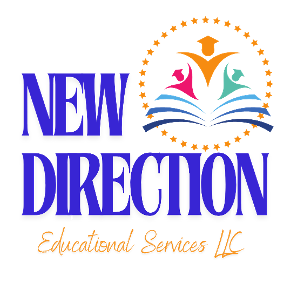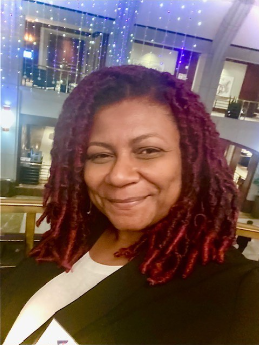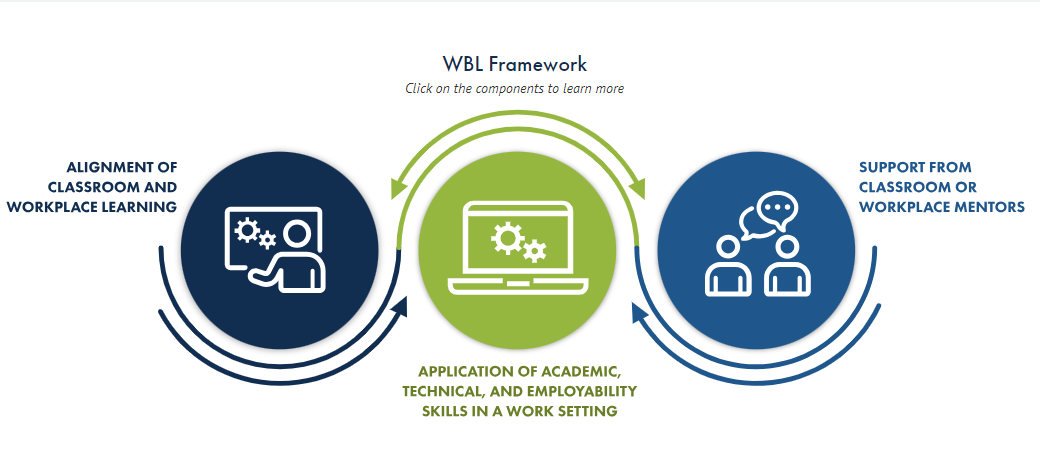
Meet the Owners
Welcome to New Directional Educational Services, LLC!
Co-owners and CEOs, Lisa Holloway and Dr. Shanita Glaspie, Ed.D., are dedicated to leading education in a bold new direction. As passionate advocates for high-quality special education services, they bring over three decades of combined experience. Lisa Holloway’s 25 years in Special Education, paired with Dr. Glaspie’s 16 years in Career and Technical Education and Special Education, create a dynamic foundation for their transformative approach. Together, they have developed an innovative framework to elevate and reshape the future of special education.

Lisa Holloway has been in the education field for over 25 years. Mrs. Holloway has always
been an advocate for students with special needs. She has been a special education teacher
for 25 years and a general education English teacher for three years. She is a licensed
qualified mental health professional. Mrs. Holloway currently serves as a principal for a private
day school for students with Autism and extreme behaviors. She has also taught GED for years
and been a tutor for over 10 years. In 2016, she wrote her first book about her son with ADHD,
entitled Being Teejay – Me and ADHD. This book goes into detail about her son’s struggles and
triumphs being a child with attention deficit hyperactivity disorder (ADHD). It is written on the
level of a pre-teen or teen, but adults find it informative and entertaining. In the same year, she
founded New Direction Educational Services, Inc, which encompasses her years as an
advocate, tutor, mentor, and consultant. Because of the growing needs of the company, she
recently partnered with Shanita Glaspie to restructure and serve more educators, children, and
families. Special Education is her passion, and she will do everything she can to make sure that
children with special needs receive equity and the education they deserve.

Dr. Shanita Glaspie, Ed.D., is a passionate educator and advocate for student success, committed toempowering K-12 and adult learners. With a Doctorate in Education from Samford University, an
Education Specialist degree in Education Administration from the University of South Dakota, and a
Master of Education from Cambridge College, Dr. Glaspie has built a robust foundation to elevate
educational outcomes. She also holds a Postgraduate Certificate in Curriculum and Instruction and
a Bachelor of Science in Business Management with a focus on Human Resources from Virginia
State University.
Dr. Glaspie believes that educational growth drives economic progress. She is dedicated to closing
the achievement gap, particularly in reading and economics. Her forward-thinking approach is
demonstrated through her service on the Federal Reserve Teacher Collaboration Committee and
her advocacy for students' learning needs at the Teacher Town Hall Meeting in Washington, D.C.
Additionally, she serves as a board member on the EdResearch Advisory Board with Transcend at
Brown University, where she continues to influence education policy and practice.
Owners Credentials include- Virginia Department of Education Teaching License & Professional License Endorsement; Texas Agency Education Teaching License
MISSION
New Direction Educational Services, LLC aims to accomplish the following goals and objectives:
Goals: Enhance Special Education Program Efficiency: To improve the effectiveness and efficiency of special education services in school districts, ensuring compliance with federal and state regulations. Empower Educators through Professional Development: Provide specialized training for educators on best practices for teaching students with disabilities, including individualized instruction, classroom management, and inclusive learning strategies. Improve Student Transition Outcomes: Support students with disabilities in making successful transitions between school levels (elementary to middle school, middle school to high school) and to post-secondary life, including higher education and employment.
Objectives: Increase Access to Mentoring and Tutoring Services: Expand access to individualized tutoring and mentoring services for students with disabilities to help improve academic outcomes and social-emotional skills. Foster Inclusive Learning Environments: Assist schools in creating inclusive and culturally responsive environments that meet the needs of all learners, including those in special education.
Please note that the content on this website reflects my personal philosophy and opinions. Thank you for visiting!
Transitioning Model for Special Education WORK- BASED LEARNING (WBL)

More educational organizations are adopting work-based learning as a supplemental method for delivering instruction. New Direction Educational Services, LLC utilizes Work-Based Learning to reinforcement and remediation soft skills. By using WBL for these reasons, teachers can support real world experiences as a resourceful tool to improve or reach content mastery. Depending on the WBL program, it can provide an adaptive curriculum, formative assessments, immediate feedback, individualized practice, and tutorials in various content areas.
Often coordinated with school-based learning, WBL offers project- and problem-focused teaching and learning rather than the more abstract and theoretical teaching and learning that often takes place in classrooms.
New Direction Educational Services, LLCSpecial Education WBL RECOMMENDED ELEMENTS
- Program Description (e.g., type of program, length, wages)
- Student Selection/ Preparation for WBL (who can participate? are they prepared?)
- Employer Selection/ Preparation (employer/mentor training)
- Program Administration (coordination, structure, guidelines)
- Curriculum Connection to WBL (direct linkage of concepts/skills or loose relation?)
- Student Learning Plan and Progress Reporting (e.g., training plan, journaling, reporting)
- Measurement of Student Learning (e.g., capstone project, evaluation, grade)
VALUE OF EDUCATION FOR EMPLOYMENT
Students provided direct instruction in skills: resume, career exploration, interview.
skills
Growth in performance on Workplace Readiness Assessment
Students actively investigate current events related to economics
Buy-in and increased participation regarding student career planning